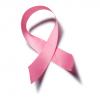news
Cancer Support Group Unites Tech Community
Primary tabs
Several members of the Georgia Tech community have established a support group primarily for survivors of and those going through all stages of breast cancer, as well as other types of cancer.
The group was established 11 years ago on campus by Susan Bowman, Academic Program manager at the School for Materials Science and Engineering, and two others. The year prior, Bowman had been diagnosed with and had survived breast cancer. "Those two ladies on campus were my resource while I had cancer," Bowman said, referring to cancer survivors who have since retired from Georgia Tech. "When I came back, we established a support group to celebrate survival and help others."
According to Bowman, eight women on average attend the meetings, held every six weeks or so. In all, the group boasts 25 members. "It's open to everyone, and we have let [the knowledge spread] via word-of-mouth and from friend to friend." The group is also open to caregivers and the families of those supporting cancer patients and survivors.
Bowman and others, including Barbara Alexander and Sharon Hunter, say the group focuses not on the disease, but tries to help attendees look to a time when they are cancer-free. Alexander is director of Accounting with the Georgia Tech Research Corporation and the Georgia Tech Applied Research Corporation, and Hunter is a database administrator in the Office of Information Technology.
Members speak about the trips they have been on, shows and movies they have seen and in general catch up with everyone. Typically, the group meets at Ferst Place in the Student Center the first Wednesday of the month. Occasionally, Alexander says, the group has called a "special meeting" for someone who has just been diagnosed.
In the case someone is dealing with a personal diagnosis, the conversation does turn to the disease, helping newcomers and veteran members alike share in what others have experienced. "One of the ladies in the group had a recurrence," Bowman said. "I was able to tell her that I had a recurrence a year after my surgery."
Alexander speaks of the same benefits. "Everyone has different side effects [to the medication]," she said. "But you can be sure someone in the group has experienced the same side effects as you have."
Hunter says that when she came into the group 10 years ago, she had already made decisions with her doctor. "If I had been in this group [before then], I might have chosen a different path," she said. "I found myself saying 'Oh, I didn't know I had that option.' At first, you don't want to discuss it, because it would mean admitting you have cancer." Calling the doctor's office "too clinical," Alexander says that talking with others who can understand the nausea that comes from chemotherapy makes opening up easier.
Bowman agrees. "[When diagnosed] you're bombarded with all of this language that you don't understand," she said. "We show [new members] that it's important to keep a positive attitude, because that has a lot to do with getting you through it." And she adds that patients and survivors of other cancers have attended the group's meetings. "All are welcome," she said. "It's very rewarding to see someone coming in afraid, and then leaving as a friend."
All three speak of the importance of staying busy and having a larger community of people to connect with during the trying time of cancer treatment. Both Alexander and Hunter continued working at Tech through their treatments. "People wanted to help," Alexander said. "They were very supportive in the office."
While group members participate in fund-raising for people participating in the Breast Cancer 3-Day and other events, Bowman adds that several-like herself-are involved in outside community groups.
"We're very happy to talk to anyone on campus and let them know there is life after cancer," Alexander said.
Groups
Status
- Workflow Status:Published
- Created By:Robert Nesmith
- Created:10/28/2009
- Modified By:Fletcher Moore
- Modified:10/07/2016
Categories

